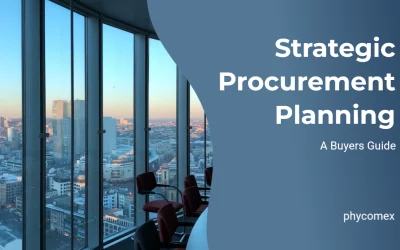The world of procurement is a complex and ever-evolving industry that requires professionals with a keen eye for detail, strong negotiation skills, and a deep understanding of market trends.
Agency buyers and procurement specialists are two key roles in this field, each with their own unique set of responsibilities and requirements.
In this article, we will delve into the key differences between these two roles and examine which one reigns supreme in the world of procurement.
Both agency buyers and procurement specialists share similar responsibilities, such as sourcing new suppliers, negotiating terms and contracts, and analyzing market trends to ensure their organization gets the best deal possible.
However, the key difference between these roles lies in their reporting structure. Agency buyers work for outside companies and are responsible for procuring goods and services on behalf of their clients, while procurement specialists work in-house and focus on procuring goods and services for their own organization.
This structural difference can have a significant impact on the job requirements, education and certification, and salary expectations for these two roles.
In the following sections, we will take a closer look at these factors to determine which role ultimately reigns supreme in the world of procurement.
Key Takeaways
- Both agency buyers and procurement specialists have similar job responsibilities, including finding new suppliers, negotiating purchasing terms, overseeing deliveries, writing proposals, obtaining quotes, and analyzing demand and industry trends.
- The education requirements for both roles vary, but a degree in accounting, business administration, or finance can be helpful, and advanced degrees and certification programs are available.
- Procurement specialists and analysts often report to chief procurement officers, and salary ranges reflect experience, skills, and location, with purchasing specialist salaries ranging from $22,000 to $82,500, and the average annual wage for buyers and purchasing agents being $66,690, and for purchasing managers being $125,940.
- Both roles involve complying with company policies and procedures, writing detailed reports, maintaining inventory and procurement records, and supporting management teams with developing and implementing sourcing strategies.
Job Responsibilities
Both agency buyers and procurement specialists share job responsibilities that involve finding new suppliers, negotiating purchasing terms, overseeing deliveries, writing proposals, obtaining quotes, and analyzing demand and industry trends.
Both roles require a deep understanding of the market and the ability to identify potential vendors that can meet the needs of the company. They must also negotiate the best price and terms for the products or services they are purchasing, while maintaining a good working relationship with suppliers.
When it comes to finding suppliers, agency buyers tend to focus on external companies and vendors, while procurement specialists work in-house and collaborate with various departments to identify the best suppliers for the company.
In negotiating terms, agency buyers often have more flexibility to negotiate prices and terms with external vendors, while procurement specialists must adhere to the company’s policies and procedures when negotiating with suppliers.
Both roles require excellent communication skills, attention to detail, and the ability to prioritize tasks.
Education and Certification
Education and certification are essential for professionals in the purchasing industry. A bachelor’s degree in accounting, business administration, or finance is often required, and advanced degrees such as an MBA can be helpful in advancing one’s career. Additionally, certification programs like CPPY, CPPC, and CPP can provide procurement specialists with a competitive edge. These programs offer specialized training and demonstrate the individual’s expertise in the field. The advantages of certification include increased knowledge and skills, enhanced credibility, and improved job opportunities.
Continuing education is also important in the purchasing industry, as it allows individuals to stay up-to-date with the latest trends and technologies. Procurement specialists need to be aware of changes in the market and industry regulations to make informed decisions. Participating in conferences, seminars, and workshops can provide professionals with valuable knowledge and networking opportunities. Additionally, some organizations offer internal training programs to their employees to ensure they have the necessary skills to excel in their roles.
In summary, education and certification are critical for procurement specialists to advance their careers and remain competitive in the industry. Continuing education is also important for staying up-to-date and making informed decisions.
Salary Information
One important aspect to consider in the purchasing industry is salary information, which can vary based on experience, skills, and location.
The average annual wage for buyers and purchasing agents is $66,690, while purchasing managers earn an average annual wage of $125,940.
Purchasing specialist salaries, on the other hand, range from $22,000 to $82,500, with a median of $45,413. These salary ranges reflect the level of experience, skills, and location of the purchasing professional.
In terms of career advancement opportunities, many companies promote from within for chief procurement officer positions or hire other applicants who have related skills and experience. Purchasing professionals can also pursue advanced degrees, like an MBA, and certification programs like the CPPY, CPPC, and CPP.
By obtaining these credentials, purchasing professionals can increase their chances of landing higher-paying positions and advancing their careers in the field.





0 Comments